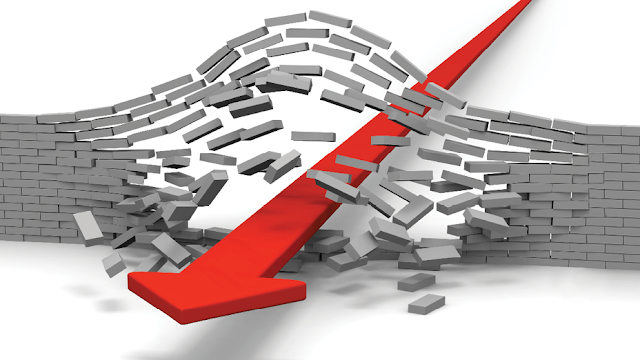Market Disruption
What is Market Disruption?

Definition:
“Market Disruption” refers to the significant and transformative changes that occur within an industry, challenging established norms, business models, and traditional practices. It involves the introduction of innovative technologies, business strategies, or products that redefine the competitive landscape, often leading to a shift in market dynamics. Market disruption can be driven by technological advancements, changes in consumer behavior, or the emergence of new players with disruptive business models.
Analogy:
Imagine market disruption as a powerful earthquake that shakes the foundations of an industry. Just as seismic activity reshapes the landscape, market disruption reshapes industries by challenging conventional structures and creating new opportunities for those who adapt.
Further Description:
Market disruption involves several key elements:
Innovation: Disruptive innovations introduce novel approaches, technologies, or solutions that challenge existing products or services. These innovations often provide more efficient or cost-effective alternatives.
Shift in Consumer Behavior: Changes in consumer preferences, demands, or expectations can trigger market disruption. Companies that understand and adapt to these shifts gain a competitive advantage.
New Business Models: Disruptive companies often introduce new business models that challenge traditional methods of operation. This may involve subscription-based services, direct-to-consumer approaches, or other innovative revenue models.
Technological Advancements: Rapid technological advancements can disrupt markets by making existing products or services obsolete. Industries that fail to adopt or adapt to new technologies risk losing relevance.
Competition from Non-traditional Players: Market disruption can come from unexpected sources, including startups or companies from outside the industry. These new entrants often leverage agility and innovation to challenge established players.
Why is Market Disruption Important?
Innovation and Progress: Market disruption fosters innovation and drives progress by challenging the status quo and pushing industries to evolve.
Competitive Advantage: Companies that embrace market disruption and adapt to changing dynamics can gain a competitive advantage, positioning themselves as leaders in the transformed landscape.
Efficiency and Cost Savings: Disruptive technologies and business models often bring increased efficiency and cost savings, benefiting both businesses and consumers.
Consumer Choice and Empowerment: Market disruption expands consumer choices, empowering them with new options and alternatives that better align with their preferences.
Adaptability: Businesses that are adaptable and open to change can navigate market disruption more effectively, staying relevant in dynamic environments.
Examples and Usage:
Uber: Uber disrupted the traditional taxi industry by introducing a platform that connects riders with drivers using a mobile app. This innovative approach challenged the established taxi business model and transformed the transportation industry.
Netflix: Netflix disrupted the traditional television and video rental markets by introducing a streaming service that allowed users to watch content on-demand. This shift in distribution and consumption significantly impacted the entertainment industry.
Tesla: Tesla disrupted the automotive industry by popularizing electric vehicles and pioneering advancements in autonomous driving technology. This has influenced how traditional automakers approach innovation and sustainability.
Key Takeaways:
- Innovation is a key driver of market disruption, introducing new technologies, business models, or approaches that challenge existing norms.
- Changes in consumer behavior and preferences can trigger market disruption, influencing how companies engage with their target audience.
- Businesses that embrace adaptability, technological advancements, and new business models can gain a competitive advantage in disrupted markets.
- Market disruption creates opportunities for companies to innovate, improve efficiency, and better meet the evolving needs of consumers.




